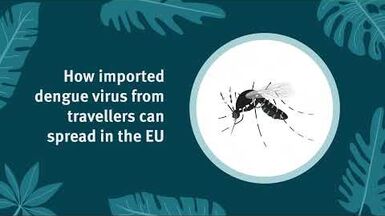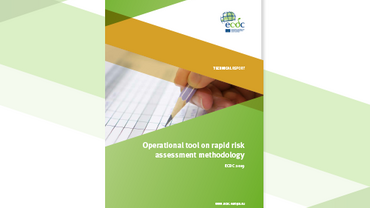ECDC hosts training on Epidemic Intelligence and Rapid Risk Assessment
In a move to bolster health preparedness in the EU`s neighbourhood regions and EU/EEA countries, ECDC organised a comprehensive training focusing on Epidemic Intelligence (EI) and Rapid Risk Assessment (RRA) in Stockholm, Sweden. The event was jointly organised by ECDC and the EU Initiative on Health Security.

Running from February 12 to 16, 2024, the training gathered 30 public health professionals from 12 European Neighbourhood Policy (ENP) partner countries and 16 from EU/EEA Member States. Expert facilitators from organisations like WHO EURO, WHO EMRO, RKI (Germany), ISS (Italy), and the ministries of health from Lebanon, Tunisia, and Spain joined the facilitation group on epidemic intelligence.
The four-day training delved into various aspects of epidemic intelligence, encompassing screening methods, review of filtering criteria, validation of relevant information, and basic analysis for reporting purposes. Through interactive sessions and practical exercises, participants gained insights into the latest tools and technologies used in epidemic intelligence, enabling them to effectively detect relevant information from open sources.
A significant segment of the training was dedicated to acquainting participants with the ECDC methodology on rapid risk assessments. Participants learned about the overall process of risk identification, risk analysis and risk evaluation, as part of a systematic and transparent approach for finding, recognising, and assessing risks. Guided by ECDC's operational methodology, attendees engaged in practical group exercises, crafting their own risk assessments through tabletop exercises.
The training closed with a final session focusing on risk communication strategies tailored to different target groups, underscored by practical exercises, highlighting the importance of community engagement.
The training provided an excellent opportunity for the participants to learn about the day-to-day EI and RRA activities at ECDC and to meet members of ECDC’s Epidemic Intelligence, Preparedness and Response and Communication teams.
Key topics covered:
- Identification and application of EI and RRA methodology and tools
- Team work on EI process and RRA production
- Timely responses based on adequate risk assessment
- Scientific communication with health authorities, stakeholders, and the media/public
Overall, the training proved to be a valuable platform for knowledge exchange, skill-building, and fostering collaboration in the critical fields of epidemic intelligence and rapid risk assessment across different regions through the training itself and through the valuable exchange of best practices of existing epidemic intelligence systems in countries such as Germany, Italy, Lebanon, Spain and Tunisia.
Epidemic intelligence and Rapid Risk Assessment
EI is a systematic approach to facilitate the search, rapid detection, and assessment of potential public health events and to generate actionable insights to ensure health security. This approach is a core ECDC function and is applied on a 24/7 basis.
During the initial phases of a public health event, rapid assessment is crucial. RRAs are promptly conducted to evaluate potential health impacts when an event of concern arises. These assessments are pivotal in guiding immediate responses and mitigation strategies.
Collaboration on multiple fronts is essential in effectively managing public health emergencies. Mobilising knowledge and efforts in EI, risk assessment, preparedness, and response to public health emergencies through international collaboration plays an important role in the cross-border cooperation between the EU and the European Neighbourhood Policy partner countries.
EU Initiative on Health Security
As the EU`s neighbouring regions are facing ongoing challenges, collaborative efforts and informed strategies in epidemic intelligence and rapid risk assessment are crucial elements in safeguarding public health.
The EU Initiative on Health Security aims to set up a regional workforce responsible for the prevention and control of the challenges posed by communicable diseases and enhancing regional cooperation to tackle cross-border health security threats.







